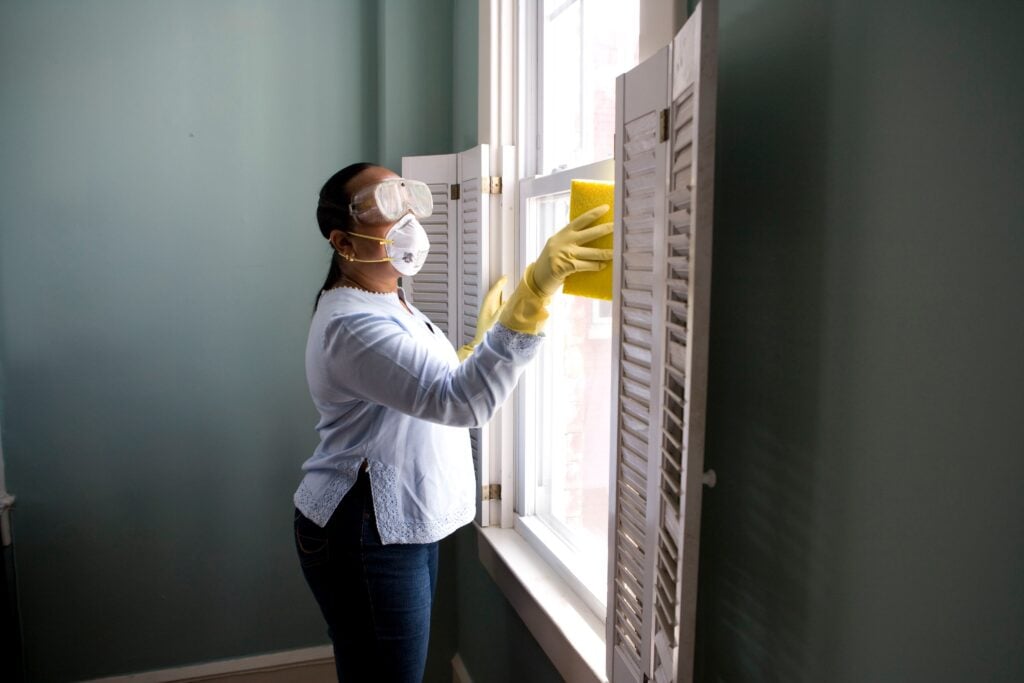What Happens To My Parent’s House If They Go Into Care?
According to a recent announcement, the UK Government is introducing adult social care reforms in 2023 that are going to benefit those residents who need to fund their care home fees. As per Build Back Better: Our Plan for Health and Social Care – GOV.UK anyone in need of a care home facility will not be required to spend more than £ 86,000 for the purpose. Once they reach this cap, their care home fees will become the sole responsibility of the state; whether they were paying for their care home expense in full or part earlier on.
Similarly, the upper limit for eligibility to pay for care home fees is also being increased from £23, 250 to £100,000. This means that anyone holding assets less than £100,00 will not have to pay more than 20 per cent of the value of their assets to cover care home expenses.
What Happens To My Parents’ House If They Go Into Care?
If your parents move into a care home facility and their house becomes unoccupied, there are many options on how the premises may be used; but this depends on the results of your parents’ financial assessment carried out by local councils.
Should your parents have sufficient funds in the form of savings and investments available to bear the expense of their care home fees (whether partially or wholly) their house remains untouched with regards to care home costs. However, if their savings and investments are not enough to pay for care home costs, their house would be considered for sale for payment of care home fees by local councils.
This too has certain conditions:
- The house must not be occupied by a relative over 60 years of age, a disable relative or a legal dependant below 16 years of age
- Both parents qualify for permanent care home residency
Additionally, in case of any of the following situations, your parent’s house will not be accounted for in the means test for care home fee estimates by local councils:
- One of the partners/spouses continue to live in the house
- A former spouse, who is also a single parent continues to live in the house
Even if your parent’s house does come under consideration during the means test, the local authorities extend a grace period of 12 weeks in such cases so that the claimant(s) and their family members are able to make a decision about their finances and property. This means that irrespective of your decision regarding your parent’s house, they will be moved into care home residency and expenses for the first 12 weeks will be borne by the state completely.
During this time, you and your parents can discuss the options at hand on how to deal with their property.
To have an in-depth understanding of the topic, we will explore the following areas:
- Can A Jointly Owned Home Be Sold To Pay For Care?
- Can Council Take House To Pay For Care?
- Who Pays Care Home Fees?
- How Much Can You Keep Before Paying For Care?
- How Can I Prevent Selling My House To Pay Care Home Fees?
Can A Jointly Owned Home Be Sold To Pay For Care?
A jointly owned home can only be sold to pay for care if both parties have a mutual agreement on the sale and are willing to sell the house for one of them to receive care. However, if the joint owners are spouses or partners and one of them continues to reside at the premises, the property cannot be considered in the means-tested carried out by local authorities. Hence, it cannot be sold to pay for care.
According to an article published in The Guardian in such situations, it is only the proportion of ownership that a care claimant has in the property that will be considered for their means assessment. The purpose of this assessment by local councils is to calculate the amount that the claimant can afford to contribute towards their care home fees and the amount that the state is supposed to fund. There is no obligation on the joint owner to hand over their proportion of ownership or agree to a sale of the property due to the other owner being in care.
Can Council Take House To Pay For Care?
No, the council will not forcefully claim your house to pay for care especially if it is in use of your spouse/partner or any qualifying dependant(s); which include the following:
- spouse/civil partner/unmarried partner
- a close relative over 60 years of age
- a close relative below 16 years of age (legal dependant)
- former spouse or partner if they are a single parent
This is called property disregard.
If a homeowner moves into a care facility indefinitely and there is no claim on the residence of their house (this means that there is no family member or a qualifying dependant living in their house) the council may then seek sales of their property. However, this too doesn’t take place on an immediate basis. Yet, in such situations, the homeowner may not qualify for care costs to be taken care of by the council.
Even if the council bears their expense in the short term, they will recover the expense from the proceeds of the sale of the house. This is called a deferred payment and may be considered when the applicant has a capital of around £23,250 (excluding the value of their house).
Who Pays Care Home Fees?
Care home fees can be borne by the state, partially or wholly, depending upon the circumstances of the claimant or they may be self-funded, partially or wholly by those in care. According to estimates, 50 per cent of care home residents are self-funded while the rest of them are state-funded.
The amount that one pays towards their care costs depends on whether they live in England, Scotland, Northern Ireland or Wales as well as the following financial aspects of the claimant:
- income
- savings
- investments
- property
Individuals living in care homes have the option of selling or renting out their unoccupied house to pay for their care home costs. However, if they have a partner or legal dependents living on the premises, the house will not be considered for care home costs.
How Much Can You Keep Before Paying For Care?
Claimants are permitted to keep a weekly allowance of £24.90 per week for themselves before paying for care home fees. People who are on pension credit will be allowed an additional weekly amount of £5.75.
The good news for claimants is that according to a recent announcement by the UK Government, with effect October 2023 nobody will have to pay more than £ 86,000 as a care home fee. Once they have paid the amount, the remaining expense will be borne by the state and funded through their local council authorities.
If the claimant’s savings are being assessed to pay for care home fees, the following criteria will be applicable in this case:
- If someone has savings over £ 23,250, the claimant will have to bear the entire cost of the care home fees
- If someone has savings of £14,250–£23,250, the claimant will have to contribute most of their weekly income towards care home fees. They will also pay an assumed extra amount of £1 per £250 of capital that they have
- If someone has savings below £14, 250, the claimant will not be required to pay for their care home fees from this amount and will have to pay from their weekly income.
How Can I Prevent Selling My House To Pay Care Home Fees?
If someone is not willing to sell their house, there is an option of Deferred Payment Agreement according to which the homeowner signs a formal agreement with their local council. The local council agrees to bear the entire care home expense of the claimant until they are ready to sell their house or the property is sold after the death of the claimant.
If you want to check your eligibility for the DPA scheme, below is a list of key criteria to be met:
- your savings and capital are less than £23,250
- you have no other funds to pay for care home expense
- you are a homeowner or are able to offer any other asset as security
- in case of your home serving as security, it must be unoccupied
Sometimes it is advisable for individuals on low income to consider their situation and make a decision whether they will be better off staying home and receiving care (as well as state benefits) or will they be taken care of better in a care home facility. In such cases, they may consider applying for Attendance Allowance or Personal Independence Payments.
Attendance Allowance is a tax-free state benefit applicable to those individuals who have surpassed the state pension age and require supervision due to their health condition. It is aimed towards providing a monthly allowance to those individuals who need assistance with meeting the extra costs of a disability or the support of a carer due to old age.
PIP (Personal Independence Payment) is a benefit intended for people aged 16 years and above; aimed to cover the additional daily costs of living with a long-term disability or illness; be it a physical or mental health condition. It is gradually replacing DLA (Disability Living Allowance) by providing recipients with:
- extra money in addition to their prevailing benefits
- a reduction in their Council Tax or Road Tax bills
- discounts on travel
Conclusion:
Although care home contributions by state and claimants largely depend on the results of the claimant’s financial assessment, owning a home is a safety net for many individuals with low savings. However, some people would not like to sell their house to pay care home fees.
In anticipation of a potential need for elderly care, it is best to plan in advance and have enough savings that may be used to bear care home expenses. Otherwise renting out your house to pay for care home fees or opting for a deferred payment plan may also be considered by claimants.
The best way to process is to assess one’s financial circumstances and health care needs. If someone is better off staying at home and having an attendant look after them, perhaps it would be a better option than moving into a care home facility. However, if the latter is inevitable, one should take advice from their local councils before making any decision.
FAQs: What Happens To My Parents’ House If They Go Into Care?
Do my parents have to sell their house to pay for care?
No, it is not necessary for your parents to sell their house for care, especially if it is going to be on a temporary basis. If they have sufficient funds in savings or investments, they may be able to use those. If not, they can also consider renting out their house to pay for care home fees.
Can I give my house away to avoid care home fees?
If you give your house away whether through the sale of property or by granting it as a gift to a close family member, local councils will consider the intention to sell while assessing your finances for care home fees. If there is evidence to prove that the house was gifted or sold to avoid care home fees, the act will be deemed as deprivation of assets. In this case, local authorities have the legal right to reclaim the property.
Can a nursing home take your house?
No, a nursing home is not authorised to claim your house. However, the state’s contribution towards your nursing home care depends on your ability to fund your expense through the sale of your house.
Can I sell my mom’s house if she is in a nursing home?
If you are a co-owner of your mom’s house or she is legally permitted to make such decisions on her behalf, you can be legally entitled to sell her house. If you own the property jointly with your mother, you will be required to pay her share of the sales proceeds to the nursing home to cover the costs of her care.
Will I lose my house if my husband goes into care?
No, if you are living in the house while your husband goes into care you will not lose the property; neither will it be accounted for during financial assessment for care home fees.
References:
How to manage your parent’s property once they’ve moved out
Can I be held responsible for my parent’s care home fees? – carehome.co.uk advice
Do I have to sell my home to pay for care? | Age UK
Adult social care charging reform: further details – GOV.UK
Paying for permanent residential care | Paying for a care home.
Do I have to sell my home to pay for residential care?
When the council might pay for your social care
Who Pays for What in 2021/22? – carehome.co.uk advice
How To Avoid Selling Your Home To Pay For Care…



